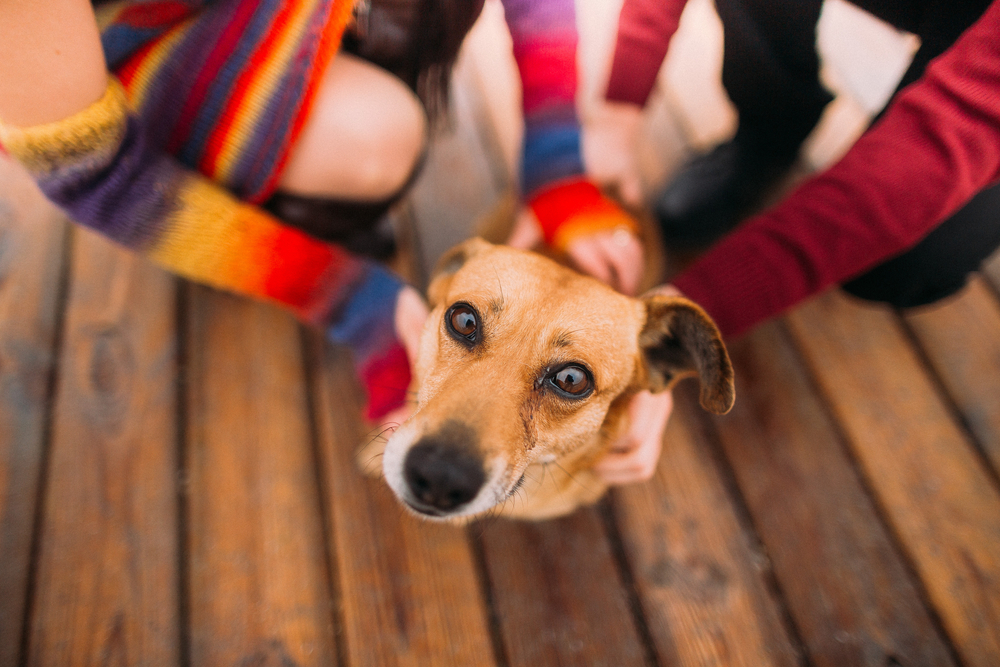Have you ever wondered why your dog seems to pay more attention to your husband than to you? This common concern among dog owners can stem from various factors, ranging from training approaches to individual dog personalities. Understanding the dynamics of your dog's behavior is crucial for fostering a stronger bond with your furry friend. In this article, we will explore the reasons behind this phenomenon and provide insights on how to address it effectively.
Dogs are social animals that thrive on interaction, and their behavior can often reflect their environment and the people around them. If you've noticed your dog ignoring you while showering affection on your husband, it can lead to feelings of confusion or even jealousy. However, it's essential to remember that dogs have unique personalities and preferences, which can significantly influence their behavior.
In the following sections, we will delve into the possible reasons why your dog may be favoring your husband over you. We will also provide practical tips to help strengthen your bond with your pet, ensuring that both you and your husband can enjoy a loving relationship with your canine companion.
Understanding Dog Behavior
The Nature of Canine Socialization
Dogs are pack animals, and their social structures can be complex. Understanding how dogs perceive hierarchy and social bonds can shed light on why they might ignore one person in favor of another. Here are some key points to consider:
- Dogs often form attachments based on consistent interaction and positive reinforcement.
- Their social behavior can be influenced by early experiences and socialization.
- Dogs may respond differently to various family members based on how they are treated.
Factors Influencing Your Dog's Preferences
Several factors may contribute to your dog's seemingly preferential treatment towards your husband. These can include:
- Training Differences: If your husband has taken an active role in training, your dog may associate him with rewards and positive experiences.
- Energy Levels: Dogs often respond to energy and demeanor. If your husband is more energetic or playful, your dog may be drawn to him.
- Routine and Schedule: The time spent with each person can impact a dog's perception. If your husband is around more during playtime or walks, the dog may favor him.
Common Misconceptions About Dog Affection
Understanding Canine Attachment
It's a common misconception that dogs are inherently loyal to one person. In reality, dogs can develop attachments to multiple people. Here’s why:
- Pack Mentality: Dogs thrive in groups and often form bonds with multiple members of their household.
- Emotional Sensitivity: Dogs can sense human emotions and may gravitate towards those who are more relaxed or happy.
- Individual Preferences: Just like humans, dogs can have individual preferences based on their experiences and personalities.
Signs That Your Dog Loves You
Even if your dog seems to ignore you at times, there are still many signs of affection to look out for, including:
- Following you around the house.
- Bringing you toys or initiating play.
- Leaning against you or resting their head on you.
Building a Stronger Bond with Your Dog
Practical Tips for Engaging with Your Dog
If you're looking to strengthen your bond with your dog, consider implementing the following strategies:
- Consistent Training: Engage in training sessions that involve positive reinforcement, making sure to reward your dog with treats or praise.
- Quality Time: Spend dedicated time with your dog through walks, play, or simply relaxing together.
- Interactive Games: Incorporate games that stimulate your dog's mind and encourage interaction.
The Importance of Positive Reinforcement
Positive reinforcement is key to fostering a loving relationship with your dog. Some effective methods include:
- Using treats and praise for good behavior.
- Encouraging your dog to respond to commands with enthusiasm.
- Creating a rewarding environment that promotes trust and affection.
When to Seek Professional Help
Identifying Behavioral Issues
If your dog consistently ignores you or exhibits signs of distress, it may be wise to consult a professional trainer or animal behaviorist. Some indicators that professional help is needed include:
- Excessive barking or aggression towards you.
- Signs of anxiety or fear when you approach.
- Difficulty in establishing a connection or bond.
Choosing the Right Professional
When seeking help, it's essential to find a qualified professional who understands canine behavior. Look for:
- Certifications in dog training or behavior.
- Positive reviews or recommendations from other pet owners.
- A training philosophy that aligns with your values.
Conclusion
In summary, there are various reasons why your dog might ignore you while favoring your husband. Understanding canine behavior, addressing misconceptions, and actively working to build a stronger bond can significantly improve your relationship with your furry friend. Remember, dogs are individuals, and their preferences can change over time. We encourage you to spend quality time with your dog and utilize positive reinforcement techniques to create a loving environment. If you have any questions or experiences to share, feel free to leave a comment below or explore other articles on our site.
Final Thoughts
We hope this article has provided valuable insights into your dog's behavior and how to improve your relationship. Remember, building a bond with your dog takes time and patience, but the rewards are well worth the effort. Thank you for reading, and we look forward to seeing you again!




